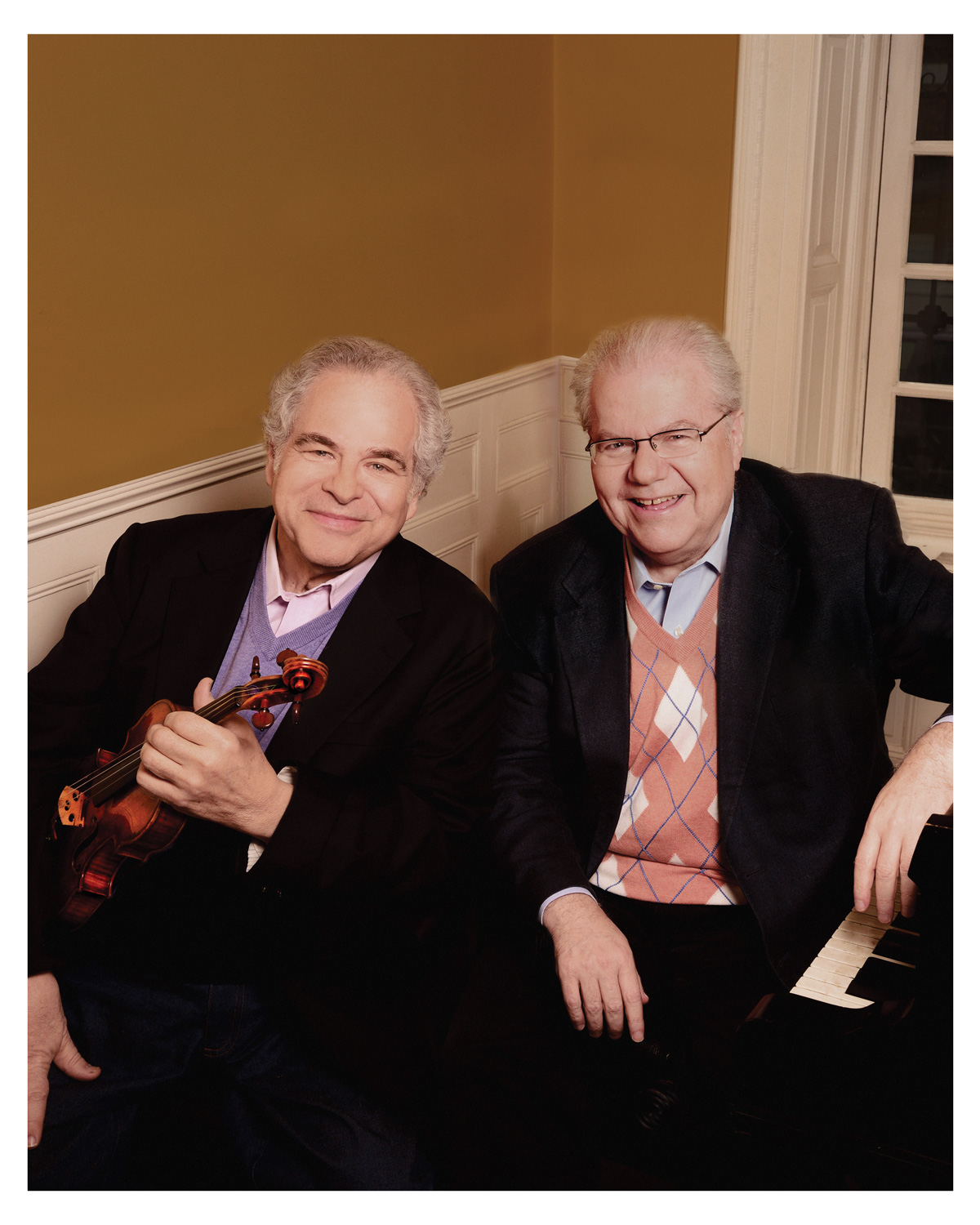
Lacy Wright
Last week, the Granada Theater was filled with the music of Itzhak Perlman and Emmanuel Ax, world class violinists and pianists respectively. Their show kicked off the Arts and Lectures Marquee series, which will also include renowned soprano Renee Fleming and pianist Yuja Wang, probably the closest thing the classical art world has to rock stars.
I never expected to see Itzhak Perlman live. It’s no secret he is aging, and rumors constantly circulate that he may retire, making this performance a rare and potentially the final chance to see Perlman perform.
The show began with Perlman entering the stage on his motorized wheelchair, Emanuel Ax walking beside him. The first thing that struck the audience were the bright cheery smiles plastered onto their faces. Before they even began playing, both men exuded energy, something that only grew as they began to play.
The first movement of Mozart’s Sonata for Violin and Piano in C Major, Vivace, was lively and playful, as the name suggests. Ax’s fingers danced about the keys almost like little sprites. In Perlman’s playing, you can feel his passion as he performed with his full body, even moving and shaking his body along to the music in the brief moments he is not playing. Perlman looked at the violin not as if he’s concentrating on his fingerwork, but instead gazing upon his instrument like a lover. He doesn’t play for the audience, but for his own love.
But as the piece progressed through each act, it began to be less playful. There’s more precision and control with each passing measure, but with the same level of energy as before. From then on, it is clear that there is no frailty in his playing, but rather an undeniable vivacity. Through each subtle change to his technique, he was able to make the audience experience a different emotion, whether it be of sadness or happiness. At the end of the second work, Fauré’s Sonata for Violin and Piano No. 1 in A Major, the audience burst out into laughter without any prompting, just out of pure reaction to the work.
But it was not Perlman’s skill alone that made this performance come alive. It comes out of the interplay between Perlman and Ax. Their connection creates a constant sense of balance in the work. Together they are in sync, two clear talents both individually and as a strengthened unit.
That relationship extends not only to their performance but also to their friendship outside the music. Before each piece, they spoke briefly, crooking their heads together and whispering, almost as if they were conspiring. There was also some banter that went on between them after the program ended.
They left the stage for only a few moments before returning for three encores. In the first encore, Ax looked down at Perlman, asking something inaudible to the audience. He then looked up and announced, “This is a favorite piece of mine. I ask him to play this piece, and sometimes he does and sometimes he doesn’t.”
The audience laughed and Perlman nodded back, waving his arms in the air with a giddy manner that matched his earlier playing.
At the end of the first encore, Perlman finally addressed the audience directly. With a dry sassiness, he explained that the piece he would play next was composed for piano and clarinet, but he would play it anyway on violin, eliciting another round of laughter from the audience. With almost indifference, he turned away and began to play.
By the end of the performance, it became clear that Perlman doesn’t do this for the audience or for anyone but himself. His passion, love and fervor is funneled into his music, and we, the listeners, are merely there to witness. The final encore was “Love’s Sorrow,” composed by Liebesleid, and for the three seconds following the final note, there was absolute silence as people sat in awe. Then the woman behind me released a huge sigh, as if she was holding in a breath she didn’t dare breathe during the performance, as if she would allow nothing to detract from the phenomenal performance.










